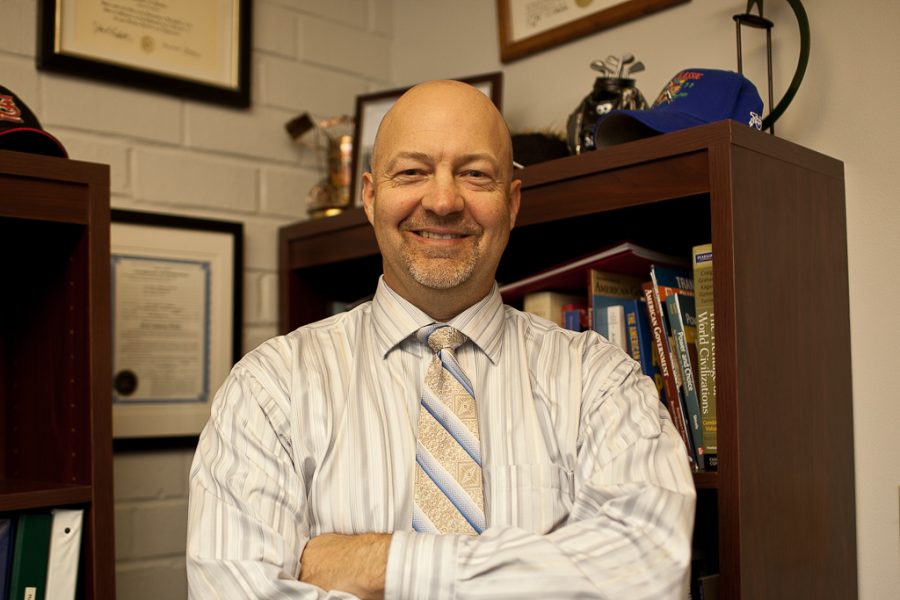Faculty Column: embracing the “old” ways of thinking
Scott Waller, an assistant professor of political science, encourages students to consider truth before writing off traditional ways of thinking as “old.”
Scott Waller is the assistant professor of political science at Biola. | Job Ang/THE CHIMES
March 22, 2012

Scott Waller is the assistant professor of political science at Biola. | Job Ang/THE CHIMES
On the last several occasions in which I have seen our provost David Nystrom speak, I have noticed a recurring theme to his remarks: We should not become so infatuated with “the new” that we lose sight of the value of what we already possess. This is certainly an intriguing idea and one, I believe, worth considering. While there are many possible applications of Nystrom’s theme, I invite you to consider one that I think will have great impact on your life.
Consider truth before adopting “new” ways of thinking
For most of the last 20 years, I have been working within the university environment and have had the privilege of being involved in the lives of hundreds of Christian college students. Many of these students came from Christian homes where they were raised within the traditions and doctrines of the faith. Upon entering the university, Christian students encounter ideas that — a la Nystrom’s dichotomy — seem quite different, quite “new,” and point to conclusions quite at odds with their “old” Christian upbringing. The temptation here, I believe, in an age when “new” seems so avant garde, is to quickly dismiss the traditional under the lure of being seen as cutting edge. This is particularly the case — and this really gets to the heart of my brief admonition to my fellow Biolans — when the “new” becomes associated with embracing a more “open-minded, intellectually engaged” perspective.
In far too many cases, Christian students embrace these “new” ways of thinking not so much because they are convinced that these ideas point to truth, but rather they embrace them as a means of escaping a view of life that is seen by the general culture as passé. In other words, they become convinced that they are escaping a way of thinking that is perceived culturally as being narrow-minded, backward and anti-intellectual. Be aware of a certain sociological pressure being brought to bear against “old” ways of thinking that I am guessing many of you were raised under. The culture has a certain velocity to it, and in too many cases it takes us to a place where believers ought not go.
“New” ideas are not always more intellectual
Certainly this pressure is brought to bear with greater virulence in secular university settings, but you will not be insulated from it here even at Biola. In some ways, this is a good thing because, like any university, we are to be engaged in the world of ideas. So, some of the ideas you may encounter in your studies here may run counter to what you have been familiar with. But here is the rub of my thoughts: Do not too easily dismiss the “old” under the guise that the “new” offers by definition a way of thinking that is in some way more “intellectual.” One of the great virtues of taking your studies at a place like Biola is that you are exposed on a daily basis to faculty, and students, who are rigorous in their intellects while at the same time are convinced of the truth of what many too easily pass off as the “old.”
As a political scientist, I encourage you in this light to look at the political arena — and this is a great time to do it given the upcoming election this fall. Suffice it to say, that if you plug into the world of politics today, you quickly will encounter the association of conservatism — particularly religious conservatism — with backwardness, intolerance and, yes, outright stupidity. In fact, according to this way of thinking, there has nary been anyone who engaged the political world from a conservative religious perspective who could be considered a “smart person.” Thankfully, many are engaged in a project to change this perception.
So, use this time here at Biola to become more convinced of the truth of what too many too quickly dismiss in the greater culture as “old.” This is a project worth your consideration.







